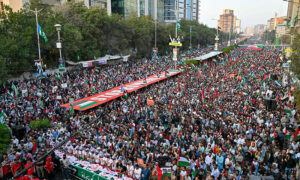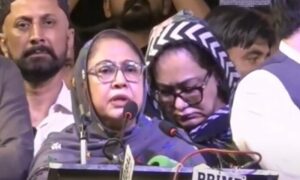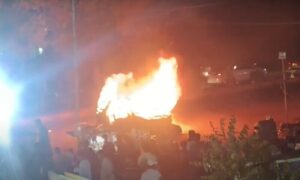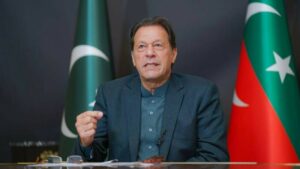ISLAMABAD:
The Senate Standing Committee on Interior on Tuesday approved a bill that regulates peaceful protests and rallies within Islamabad, allowing such activities only in designated areas approved by the government.
The bill, titled “Peaceful Assembly and Public Order Bill 2024,” was presented by Senator Saleem Mandviwalla.
According to the bill, protests will only be allowed in specified locations such as the Sangjani area or other government-approved sites within Islamabad. Any protest or rally conducted without government approval could result in participants facing up to three years in prison.
During the discussion, Senator Irfan Siddiqui pointed out that the bill was limited to Islamabad and aimed to bring protests under legal regulation to prevent disruptions.
He suggested designating a specific area for protests to avoid the frequent roadblocks caused by rallies, which inconvenience the public and even diplomats.
Senator Mandviwalla explained that the bill’s purpose was to provide a legal framework for holding protests, reducing the likelihood of confrontations between the judiciary and administration.
He cited recent instances where highways were blocked by small groups, causing disruption, including preventing Senate members from attending meetings.
However, the bill faced opposition from Senator Saifullah Abro, who argued that existing laws should be reviewed before introducing new legislation. He raised concerns about the potential misuse of the law to suppress peaceful protests.
Senator Samina Mumtaz Zehri and Senator Omar Farooq stressed that the bill was not intended to target any political party but rather to ensure that protests do not harm public or private property.
Meanwhile, Federal Interior Minister Mohsin Naqvi disclosed to the panel that the majority of those involved in the recent wave of terrorist activities in the country were individuals previously released under a peace agreement, orchestrating attacks from Afghanistan.
The minister revealed that the interior secretary had recently visited Afghanistan and provided substantial evidence of these activities, urging the Kabul authorities to take action.
He said terrorists, many of whom had been released as part of an earlier deal, had regrouped in Afghanistan and were now carrying out attacks against Pakistan from across the border.
He noted that the resurgence in terrorist activities was largely due to these groups operating from Afghanistan, particularly the Tehreek-e-Taliban Pakistan (TTP), which has been gathering strength there.
The minister clarified that there were no plans for a military operation in Balochistan, but confirmed that the deadly August 26 attack was carried out by banned organisations that had joined forces.
The attack targeted an FC camp, where the militants launched a fierce assault, firing on all 14 towers of the building. “Alhamdulillah, our forces successfully repelled the attack; had they breached the facility, the consequences could have been far worse,” he noted.
Further elaborating on the operations being conducted in Khyber Pakhtunkhwa, the interior minister informed the upper house that intelligence-based actions were being carried out wherever there were reports of terrorist presence.
Regarding the situation in the Kutcha areas, Naqvi said that the government was coordinating with the provincial authorities of Punjab and Sindh to ensure that once these regions are cleared of criminal elements, lasting measures are taken to prevent a resurgence.











